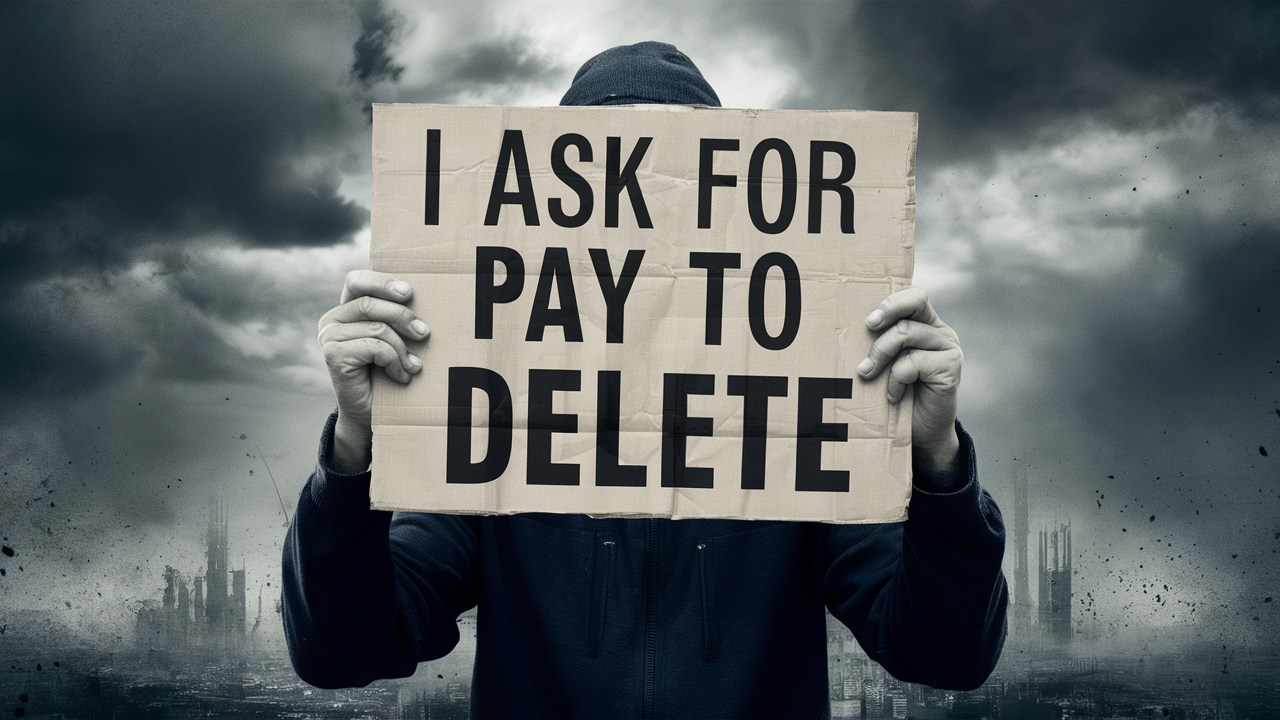-
Posted on: 17 Jul 2024

-
I am now going to share about something I have never done before: How do I ask for a pay to delete?
If you have collection accounts that are negative items for your credit score, then having a pay-to-delete agreement is one of the ways that will help to better your credit score. This is how you can ask a collection agency to remove your pay from your credit report.
What exactly is a Pay to Delete Arrangement?
A pay-to-delete arrangement is an agreement you can attempt to make with the third-party collector. In summary, if they agree, any record of that debt is wiped out from your credit report once you clear the outstanding amount of the debt you incurred.
A pay-to-delete agreement will help boost your credit score since the credit bureaus, to which the credit reporting agency sells the credit report, will also be devoid of the negative item you had in your report. A single unpaid debt that is reported to the credit bureaus can lower the FICO score of an individual by a certain range of 100 points.
What Contexts Make Pay to Delete Possible?
Federal law permits collections to remain on your credit file for up to seven years depending on the type of credit. But, the good thing is that numerous collection agencies are ready to wipe off debts in the belief that the interested parties will pay for a clean slate and have the collectors start over if they fail to pay again.
It is worth noting that some of the collection agencies refuse to engage in pay-to-delete arrangements. It is therefore important to make your request in a non-confrontational manner because you want them to agree to honor your agreement while maintaining a good relationship.
How to Write the Pay-to-Delete Request
Begin with the list of delinquent accounts and agencies to which they are transferred. You can request your credit report to see all current collection items. This will also inform you of the balances that you will need to fulfill to clear each of the debts.
After that, prepare a debt validation letter that needs to be sent to each of the collection agencies demanding copies of the information that they have gathered regarding the debt. Make sure to tell them to stop reporting activities at any credit agency until they agree to do as you want.
After receiving the validation information, you should get back to the agencies to start the process of paying to delete. Apologize and offer a reason as per your reasons for your inability to meet the payment of the debt. Tell them that you are ready to pay this amount provided that they ensure that your account is wiped off your credit report upon receiving the amount.
After making the initial request ensure that you follow it up by writing a letter that should clearly state your willingness to make payment to the company in exchange for them to stop reporting the unpaid balance. This is handy in case you are to challenge the item in the future, if not deleted as had been agreed. As part of the documentation process, store copies of your e-mails, checks for payment, and any other related paperwork that you have for your records.
Finally, the most important advice is: Don’t pay anything to the creditor without having a written agreement on this matter! This proof ensures that this particular item will be deleted from the credit file as agreed by both parties.
Beware of Scams
Avoid any agency that would require a hefty amount of money from you or to be paid upfront, including if they promise to ensure you have a specific credit score after helping you. However, it has been established that it may take a minimum of six months if not years to regain a poor score. It is stated that some states do not allow collection agencies to charge consumers any incidence fees for the debts they owe.
The agencies you speak to for debt collection must inform you of your rights under FAIR DEBT COLLECTION, how you can dispute any of the inaccuracies on your credit report, and how you can get copies of your credit reports for free among other things, they cannot harass or they cannot make any false claims about your debts or creditworthiness. If one feels a collector infringes on their consumer rights, then the appropriate course of action is to contact the state attorney general’s office.
Am I able to negotiate more than one debt at once?
You could, of course, do so, but then bargaining for the right to wipe off every single blot becomes an issue. This means that in case one has several unpaid bills, they must show some problems in managing their finances. Collectors do not have a strong reason to collect more than one if they will not receive significant compensation or if there is no settlement plan in place.
If you can secure one main debt to be removed it proves more useful than several small balances’ deletion and does the job of increasing your score substantially. Paying off one’s largest debt balances is the most effective credit repair strategy, particularly when provided in full payment. All other credit obligations need to be met without fail to prevent fresh issues from emerging in the future as a result of your actions.
Struggling with bad credit? Dial (888) 803-7889 for expert credit repair assistance!











